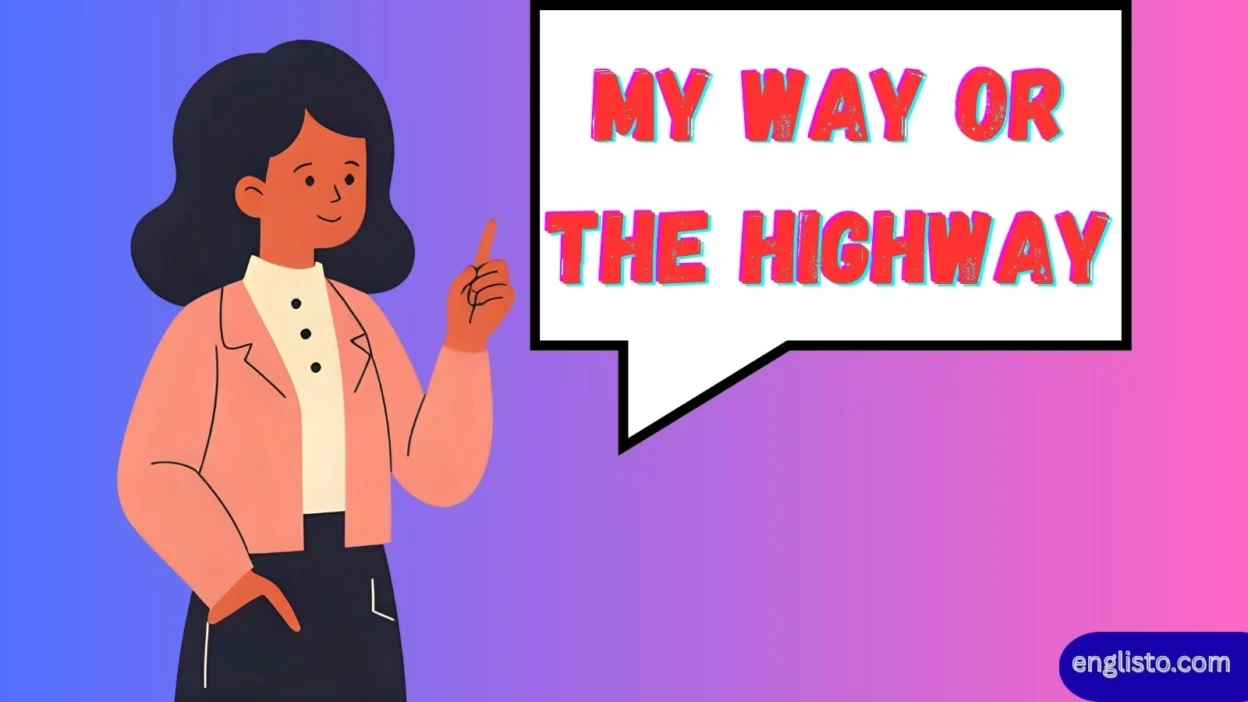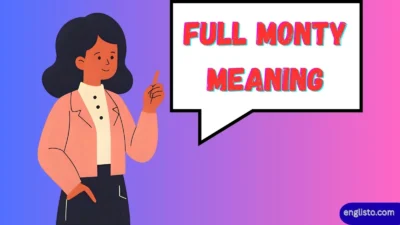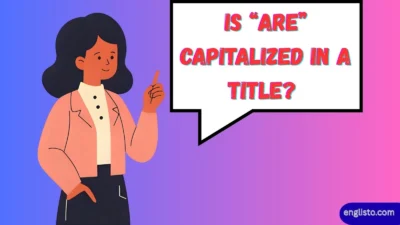Language is full of expressions that pack a punch, and one that often sparks curiosity is “my way or the highway.” This bold phrase isn’t just colourful; it carries weight, history, and lessons about power, negotiation, and relationships. Whether you’ve heard it from a boss, a parent, a coach, or even in movies, it always signals an ultimatum: do things exactly as demanded, or face exclusion. My Way or the Highway.
In this article, we’ll dive deep into the idiom’s definition, origin, cultural significance, and real-world examples. You’ll learn not only what it means but also how and when to use it (or avoid it). By the end, you’ll understand why this phrase remains so enduring across workplaces, families, and even politics.
What Does “My Way or the Highway” Mean?
At its core, “my way or the highway” is an ultimatum idiom. It means:
- Follow my rules, instructions, or decision, or else leave.
- Comply with the speaker’s wishes, or quit altogether.
It’s a non-negotiable stance where the person speaking refuses to compromise.
Here’s a quick look at its literal vs. figurative meaning:
| Aspect | Literal Meaning | Figurative Meaning |
| “My Way” | The road/path chosen by the speaker | The speaker’s decision, method, or opinion |
| “Highway” | The actual highway or road you take to leave | Being excluded, quitting, or walking away |
| Tone | Physical direction | Commanding, uncompromising, take-it-or-leave-it |
So, when your boss says: “It’s my way or the highway,” they’re telling you to either comply or find another job.
Read More: Lier or Liar: Understanding the Confusing Pair in English
Origin of the Idiom
The phrase feels distinctly American in its punchy style, and for good reason. Most etymologists trace its roots to the United States in the mid-20th century.
- Earliest Recorded Usage: Tampa Bay News, August 1974, referenced it in a workplace setting.
- Cultural Rise: Gained traction in the 1960s–70s, aligning with U.S. values of individualism and authority.
- Sports Influence: Famous football coaches like Vince Lombardi and Bill Parcells embodied this attitude. They insisted players conform to strict rules, giving rise to phrases like: “You play by my rules, or you’re off the team.”
The phrase resonated with a society navigating authority, independence, and rebellion, becoming a staple in workplaces, families, and pop culture.
Examples of “My Way or the Highway” in Sentences
To fully grasp this idiom, let’s see it in contextual sentences:
- “Dad insisted on setting a curfew for Sarah’s 16th birthday party—my way or the highway.”
- “The project manager told us to follow the plan exactly. It was my way or the highway.”
- “During wedding planning, her mother-in-law gave her a choice: my way or the highway.”
- “The restaurant owner refused to change the menu based on customer suggestions—my way or the highway.”
- “President Trump’s critics often accused him of taking a my-way-or-the-highway approach to democracy.”
Notice how the tone changes with context: in families, it’s strict parenting; in workplaces, it’s rigid management; in politics, it signals inflexibility in leadership.
Synonyms and Related Expressions
“My way or the highway” shares space with other idioms that emphasize stubbornness or dominance:
| Idiom/Phrase | Similar Meaning | Tone |
| Take it or leave it | Non-negotiable offer | Neutral/assertive |
| Like it or lump it | Accept the situation, no matter your opinion | Informal, blunt |
| End of story | No room for further discussion | Final, dismissive |
| Done deal | Decision finalized, no change allowed | Businesslike |
| Stick to your guns | Refuse to compromise on your stance | Determined/confident |
These alternatives range from polite firmness to harsh command, giving flexibility depending on the situation.
The Tone Behind the Idiom
The tone of “my way or the highway” is almost always:
- Assertive – speaker takes full control.
- Uncompromising – no middle ground.
- Commanding – authority figure dictates terms.
- Confrontational – creates tension in conversation.
However, it can also carry sass or humor in casual speech, like when a chef bellowed in a movie: “You eat what I cook—my way or the highway!”
Real-Life Situations Where It’s Used
This idiom appears in countless real-world settings:
Parenting
Parents often use it with children: “You follow the house rules or it’s my way or the highway.”
Workplaces
- Bosses to subordinates: demanding overtime or adherence to strict policies.
- Managers in projects: refusing alternative approaches.
- Restaurant owners: insisting customers follow their dining rules.
Relationships
- A boyfriend refusing to compromise on vacation plans.
- A husband insisting chores be done his way.
- A mother-in-law dictating wedding details.
Politics and Leadership
- Used to describe dictatorial or rigid leaders.
- Critics of political figures often highlight the dangers of this style.
Positive and Negative Connotations
Not all uses of “my way or the highway” are negative. It depends on context and delivery.
| Positive Side | Negative Side |
| Shows decisiveness and leadership | Creates resentment or mistrust |
| Establishes clear rules and boundaries | Stifles creativity and collaboration |
| Can motivate discipline in teams | Damages relationships and teamwork |
| Ensures efficiency and focus | Seen as arrogant, dictatorial, or unyielding |
For example, in sports coaching, this phrase may instill discipline and unity. In family discussions, however, it may spark conflict.
Usage in Pop Culture
Over decades, this phrase has appeared in:
- Movies: tough coaches, sassy chefs, stubborn dads.
- Songs: symbolizing rebellion or dominance.
- TV shows: dramatic confrontations between characters.
- Books and blogs: as a metaphor for control and authority.
Its punchy rhythm and unmistakable meaning make it memorable and entertaining.
Grammar and Linguistic Notes
- Idiom Type: Informal, American English.
- Part of Speech: Phrase used as a statement or ultimatum.
- Structure: Possessive pronoun + “way” + alternative (“highway”).
- Flexibility: Can be modified slightly in tone (e.g., “It’s her way or the highway”).
Linguists note that its popularity aligns with U.S. cultural values of individualism and straight talk. Google Ngram trends show spikes in usage during the 1970s and again in modern political commentary.
Why People Use This Idiom
People reach for this phrase when they want to:
- Assert authority in situations with conflict.
- End a discussion without compromise.
- Highlight power dynamics in workplaces or families.
- Sound bold or dramatic in casual conversation.
It works because it’s short, sharp, and leaves no room for doubt.
Lessons from the Idiom
“My way or the highway” highlights both the strengths and weaknesses of uncompromising communication.
- Strength: It shows conviction, clarity, and decisiveness.
- Weakness: It risks alienating others, damaging trust, and preventing creative solutions.
As a rule of thumb:
- Use it sparingly.
- Avoid it in sensitive negotiations.
- Remember that cooperation often brings better outcomes than rigid ultimatums.
FAQs
What does “my way or the highway” mean in simple terms?
It means: do things exactly as I want, or leave.
Is “my way or the highway” formal or informal?
It’s informal, mostly used in casual speech, workplaces, families, and politics.
Where did the phrase come from?
It originated in the U.S. in the 1960s–70s, gaining traction in sports and workplaces.
Is it always negative to say “my way or the highway”?
Not always. It can show decisiveness and leadership, but often comes across as arrogant or stubborn.
What’s a synonym for “my way or the highway”?
Take it or leave it, like it or lump it, or end of story.
Conclusion
The idiom “my way or the highway” is more than a catchy expression—it’s a window into power, authority, and human relationships. Born in American culture and popularized through sports, workplaces, and pop culture, it embodies the tension between individual control and collective cooperation.
It’s a phrase that commands attention, but also sparks debate: when should leaders stick to their guns, and when should they compromise? Understanding its meaning, origins, and nuances helps us navigate both personal and professional conversations with greater awareness.
In the end, whether you use it or face it, this idiom reminds us of the balance between assertiveness and empathy—the difference between building bridges or burning them.


![Good Morning [Name]: Is There a Comma After “Good Morning”?](https://englisto.com/wp-content/uploads/2025/09/Good-Morning-Name-Is-There-a-Comma-After-Good-Morning-400x225.webp)
